There are moments in search and rescue that test not your training, not your endurance, but your soul.
I joined search and rescue with a clear, singular purpose: to help those in distress. When a call drops, my moral compass spins to one true north: there is someone lost, cold, injured and if I do nothing, they die. My job, my calling, is an act of fundamental goodness. It is an act of commission, the decision to go out and intervene.
But sometimes, on a frozen ridgeline or in the middle of a swirling storm, that compass shatters. We become trapped by a question where the right decision is impossible to find. It becomes an unanswerable question when searching for the path that does not exist.
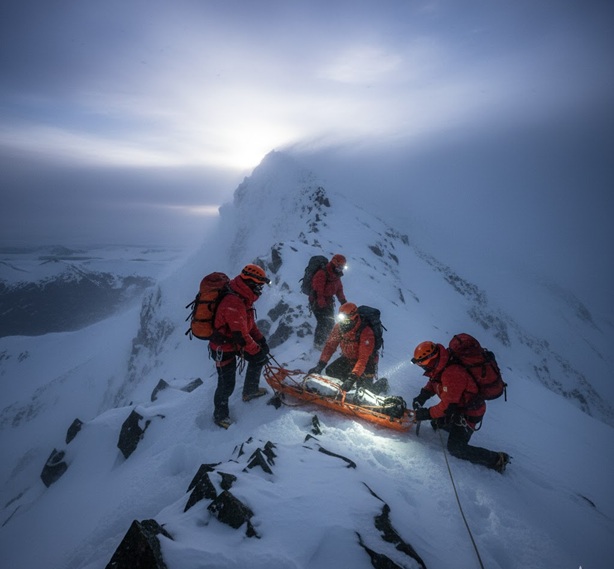
The Philosophical Trap
To understand the weight of this choice, think of it in fantasy terms — a moral framework most of us learned on Dungeons & Dragons nights or watching Lord of the Rings. This is the Paladin’s Dilemma. A Paladin is a hero bound not just to do right, but to be right, even when those two things don’t align.
Imagine you are a Paladin, a warrior sworn to both Lawfulness and Goodness. You are running from a collapsing mountain fortress. Before you, an Orc kneels, a creature of inherent evil, a member of a race long known for cruelty and destruction. He begs for your help, swearing on his life that he will never harm a soul if you save him. You can save him, but you’ll never make it out together. Each of you will go your separate ways before you escape. Help him and you may unleash evil again. Leave him and you condemn him to certain death.
What do you do?
- The Sin of Omission (Good): The moral thing is to save anyone in distress. Mercy and compassion demand it. Failure to save a person you can easily reach is a sin, an act of omission. You can not judge a person to death for a crime they might commit.
- The Sin of Commission (Lawful): The lawful thing is to prevent harm from coming to others in the future. You know the history of the Orc race. You know the oath is probably a fleeting moment of desperation. If you save him, knowing he will renege and likely cause future harm, you have actively enabled the suffering of others.
Do you compromise your morals and leave him to die or do you risk creating a monster? Either way, something dies — the Orc or a part of you.
Walt Longmire’s haunting introspection cuts deep: “Do you ever feel you’ve created more evil than you’ve stopped?”
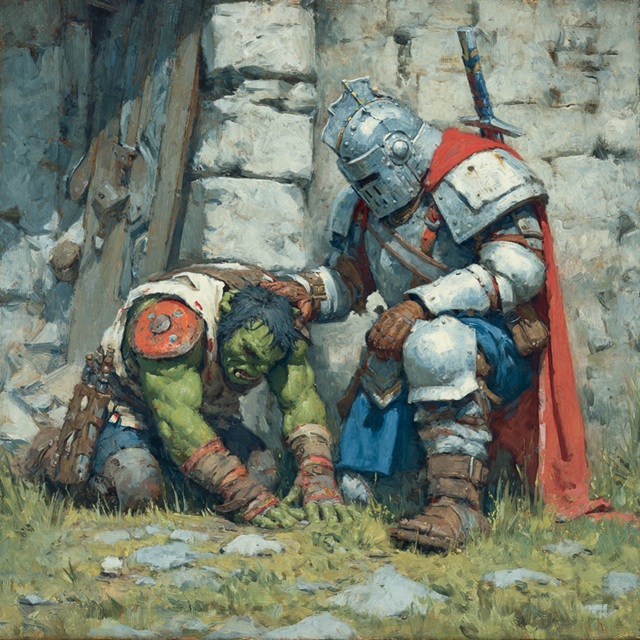
The Reality of the Freeze Line
This is not a fantasy game. This is the reality of my recent mission: an elderly man with existing medical issues, missing for two days. He was someone’s father, someone’s husband, out there in the cold, possibly already fallen. Every instinct, every ounce of my moral fiber screamed, We keep searching. We don’t stop.
The second night was going to dip well below freezing. We were no closer to finding him and the terrain and rapidly dropping temperatures were starting to turn on my team. The search was becoming hazardous to the rescuers. We had scoured the terrain, pushed our limits and now the search itself threatened to consume us. We were cold, exhausted and no closer to finding him. The terrain was unforgiving, the wind cut through our layers and we knew that one misstep could mean another casualty, one of our own. Hazardous conditions whispered warnings of injury, of tragedy befalling the searchers themselves and they demanded our attention.
This is the rescuer’s dilemma: I must save the subject, but I must also protect the team.
In search and rescue we talk about risk versus gain. It’s neat on paper, clinical in the training manual. But in the dark, when your boots are soaked through and the radio crackles with the sound of distant voices battling the elements, it’s no longer a formula. It’s a reckoning.
How do you weigh one life against another when the scales are built from uncertainty? Maybe he’s still alive and we can find him. Do you push on, chasing the hope of a miracle? Or do you pull your team back, preserving the living at the cost of the lost? Maybe if we continue, nothing bad will happen to us. Just like in Dungeons & Dragons, is this a roll of the dice? There is no truly right answer. Only a burden you choose to carry.
My obligation to the subject is profound, but it is an individual obligation. My obligation to the team — mothers, fathers and friends — is a communal and lawful one. When the risk of injury, hypothermia or worse to a rescuer surpasses the probability of finding the subject alive, the equation shifts from rescue to recovery.
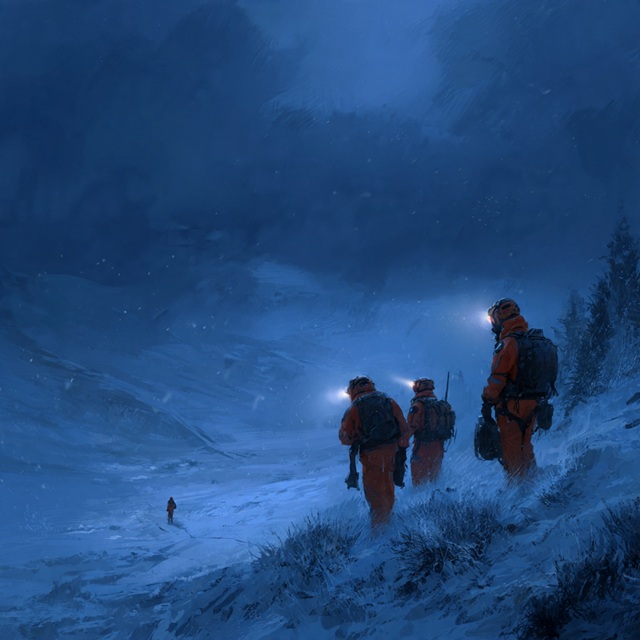
The Hard, Human Decision
In the Paladin’s story, there is always time for a moral debate. In search and rescue, that debate happens in seconds, based on data, not philosophy. The decision is not about creating future evil. It is about preventing immediate, unnecessary harm.
Our leadership has to ask:
- Probability of Survival (Good): Given the subject’s age, pre-existing conditions, the elapsed time and a night below freezing, what is the honest, medically informed probability that we will still find him alive?
- Risk to Rescuers (Lawful): What is the calculated risk — ice, snow, darkness, fatigue — to the searchers right now? Is the risk now equal to or greater than the chance of a successful rescue?
When the risk to rescuers clearly outweighs the probability of finding a living subject, the “right” decision is the hardest one: we transition to a recovery operation by pulling the team out.
This choice is not about heartlessness. It is about stewardship. As a rescuer, my promise to my community is twofold: I will risk my life to save others, but I will not risk two lives (a rescuer and the subject) when the subject is likely already gone. Leaving the field on that second freezing night is not a sin of omission against the lost person. It is an act of commission to protect the living. At least that’s what I have to tell myself.
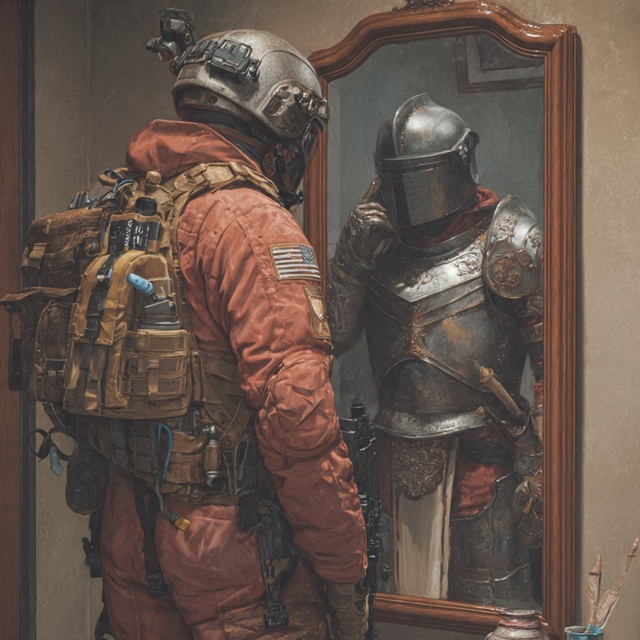
Finding Balance in the Law of Good
Search and rescue isn’t about finding answers. Often, it’s about living through questions. Like the Orc’s plea, we’re confronted with irresolvable tensions between duty and risk, morality and consequence. Maybe the effort itself is the response. Imperfect, human, necessary.
Ultimately, the Paladin’s Dilemma in the field is solved by acknowledging the oath to the team first.
We continue the search with every resource until that line is crossed. When it is, we make the call. We use technology — drones, thermal imaging — to search from the air, mitigating the ground risk. We shift to smaller, specialized teams. But when the time comes and the moral choice of saving the subject conflicts with the lawful choice of protecting the team, we prioritize the living.
In the end, it’s less about solving the dilemma and more about bearing witness to it, acknowledging the weight of decisions where right and wrong dissolve into shadow. We search because we must. We choose because we can. And in that choosing lies the echo of what it means to be human. Sometimes, being a rescuer means understanding that compassion and caution can be at odds and that both can be right. Maybe that’s the heart of the Paladin’s Dilemma: you don’t always get to be the hero. Sometimes, you’re the steward of impossible choices, the quiet keeper of decisions no one else wants to make.
You don’t leave people behind, but you also don’t sacrifice the living in a blind chase for redemption. You #TakeTheExtraMinute, not just to search, but to think. To weigh. To pray. To remember that “doing good” isn’t always clean or comfortable.
It’s a deeply painful choice. It never feels like victory. It feels like a burden, the burden of being the one who had to make the impossible decision. But that is the final, true test of the oath: to accept the pain of not being able to save everyone, so that the life and health of the community’s active rescuers can be preserved for the next call. That is how we ensure that our act of goodness can continue, even if you spend the night staring at the dark ceiling, wondering if your commitment to the greater good took away a piece of your soul. You are warm, but your soul is tormented.
And when dawn comes, you shoulder your pack again. Because even when the right answer is impossible, doing your best in the space between right and wrong is what makes you a Paladin.
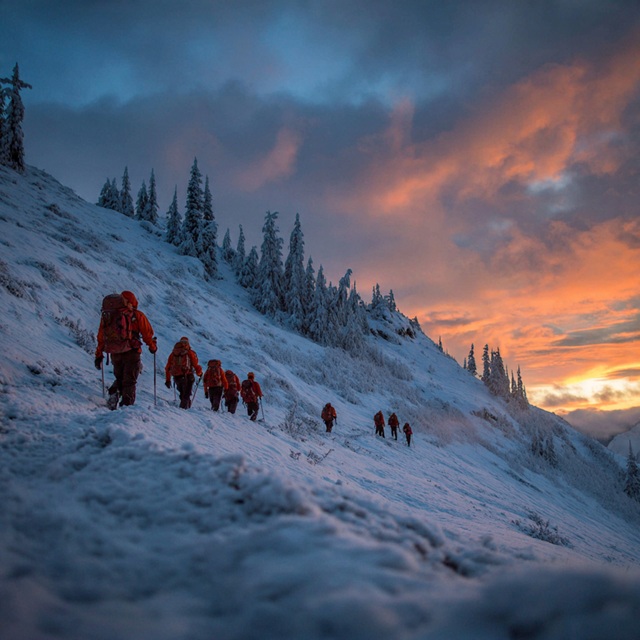
Discover more from Tales of Many Things
Subscribe to get the latest posts sent to your email.
